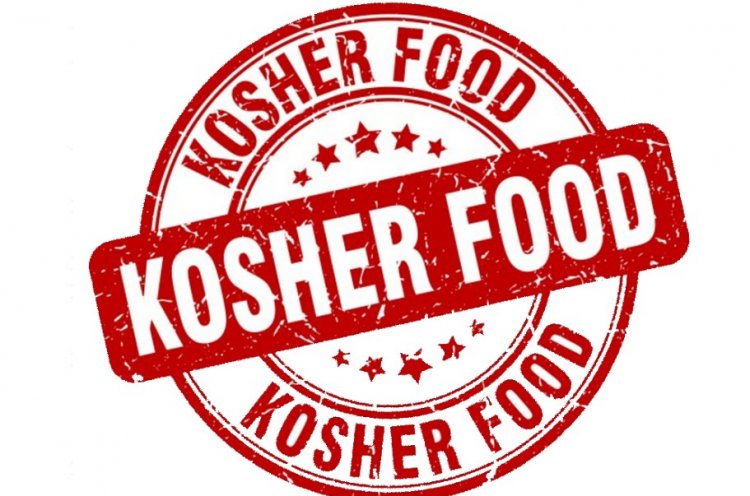Rabbi Yosef Zeritsky: "I know all the kosher restaurants in Israel, and also those that present themselves as kosher when they are not"
Navigating the complex world of kosher certification in Israel - a rabbi's insider perspective on deception and standards
 Rabbi Yosef Zeritsky
Rabbi Yosef ZeritskyIt happened a few months ago. Rabbi Yosef Zeritsky received a call from a Jewish man who was about to marry off his daughter and asked him to check the kashrut of one of the well-known wedding halls. "The envelopes from the hall say it's Mehadrin kosher, and the hall owner told me the meat and poultry are under Rabbi Machpud's supervision, but I want to get your final approval," the man told him.
Rabbi Zeritsky heard the description, and after 30 years of experience in the field of kashrut, a red flag went up, and he decided to investigate the business up close. "I scheduled a meeting with the hall owner," he tells us, "I arrived at the place and he greeted me happily and showed me in. We had a long conversation where I asked him where the poultry came from, and he replied: 'Everything is under Rabbi Machpud's supervision, it's perfectly fine.' I asked if I could see them, and he took me to the kitchen, opened the freezer and showed me two boxes full of poultry with Rabbi Machpud's certification. I thanked him, but just before we left, I approached the chef and asked him: 'How many people are coming here today?' The chef told me that more than 1,000 people were expected, since there was a brit in the morning and two more events in the evening. I immediately understood that the two boxes in the freezer were only meant to deceive me. I left the hall, went to the dumpster outside and discovered dozens of empty boxes of regular kosher poultry. That's how the fraud was revealed."
"My job is not to believe people"
Rabbi Yosef Zeritsky tells us this difficult story with great pain, since as he points out – an ordinary person without special knowledge of kashrut truly cannot identify such problematic cases. "And that's exactly why since I started working in kashrut about thirty years ago, I decided to study the subject very thoroughly. Over the years, I have provided kosher certification for various businesses – pizzerias, restaurants, hotels, halls, pastry shops, and more. There isn't an area I haven't worked in, and along the way, I've discovered all the breaches that exist in it. Throughout the journey, I was curious and very interested in what was happening in the field. I became self-taught; every time I entered a factory, I would ask the owners what each raw material was used for and what the difference was between materials. That's how I learned and began to understand things in depth. Later, when I would enter businesses to give them kosher certification, I would know immediately when the owner was trying to deceive me."
But why? Why would a business owner who wants Mehadrin kosher certification want to cheat?
"You have to understand that a chef in the kitchen is like a king in his kingdom," Rabbi Zeritsky explains, "and when I come in and require him to maintain Mehadrin kosher standards, he is forced to replace some products and adapt them to my requirements. It might make the food less tasty. It could also be simply difficult for him to get used to something new, and of course, there are also the high costs."
And when Rabbi Zeritsky talks about costs, he notes that in addition to the high cost of meats and products with Mehadrin certification, business owners are also forced to dismiss some employees when they switch to Mehadrin certification. "Naturally, there aren't many Jews willing to be grill workers or deal with shawarma, because it's very hard work, at minimum wage and in terrible heat. Therefore, most places mainly employ Arabs. But once the business enters Mehadrin certification, there is no possibility for a non-Jew to touch the food, so they have to pay more to employ a Jew. There is a huge temptation for business owners, and I define my role as someone whose job is not to believe people, because I understand that the temptation is very great."

However, Rabbi Zeritsky emphasizes that there are also many business owners who are genuine people who understand that the Rabbinate's certification is not sufficient, and they want Mehadrin certification, but they don't understand how much it demands of them. "They don't understand that once a business owner switches to Mehadrin certification, he must allow the kashrut supervisor to be in the business during all operating hours, to enter the kitchen, to see everything up close, and also to intervene in what happens there. They feel that someone has suddenly invaded their private territory, but what can you do when this is exactly the supervisor's job?"
Can we assume that it's easier to convert a dairy restaurant to Mehadrin than a meat restaurant?
"Many think so, but it's completely untrue," replies Rabbi Zeritsky, "The situation is exactly the opposite – when it comes to a meat restaurant, the foods are either pareve or meat, and the division is relatively simple and clear. But in dairy restaurants, there are many types of fish that must be checked to ensure they come from sources without worms, there are various fine cheeses, and many other dishes like quiches, gnocchi, blintzes, and more, each made from different raw materials that must be traced. Even when it comes to pizza," he surprises us, "even then there are so many obstacles. Because you need to ensure that the tomato paste is not from heter mechira, there's also a spicy sauce called Tabasco sauce that is very common in pizzas, but it doesn't have kosher certification and is forbidden to consume, you also need to check who lit the oven, because a non-Jew is not allowed to light it, and we haven't even talked about separating challah from the dough."
There are restaurants with Rabbinate certification that claim they are strict about all these things. Is it permissible to eat in them?
"I'm not ashamed to say, but in my opinion, if someone eats at a place with only Rabbinate certification - there is a real concern that they are eating non-kosher food. Because even when there are God-fearing kashrut supervisors, the requirements that the Rabbinate demands of them are at a very low level, and there is no real oversight of them. Not to mention that the Rabbinate's kashrut supervisors are not present throughout all hours of the day in the businesses, but come and go. In Badatz certifications, on the other hand, the kashrut supervisor is the one who opens and closes the business, it's something completely different."
There is a rabbi who will always answer your questions
But even when it comes to Badatz certification, Rabbi Zeritsky says that one must keep their eyes open and examine the matter closely. "There are better Badatz certifications and there are less good ones, and there are those that don't employ supervisors at all and just present themselves as Badatz," he warns.
He also notes that while there are many cases where business owners mislead customers, it often happens that it's the customers themselves who don't check and investigate enough. "Most people who fail do so innocently, but even innocence has its limits. You can't enter a restaurant with your head only in the bowl or plate. I was once at an event where one of the diners asked the waiter what the kosher certification was in the place. The waiter mumbled something under his breath, but the Jew didn't hear at all, he was busy with the food. The feeling was as if – as long as something was said, now everything is fine, and that's really not the case."
And for anyone who, in light of the descriptions and stories, is worried and concerned about failing, Rabbi Zeritsky offers a simple suggestion – "There is a rabbi named Rabbi Yosef Zeritsky, who answers dozens of phone calls every day from people who want to inquire about the issue of kashrut in various businesses. I am very familiar with all the restaurants in the country – both the kosher ones, and those that present themselves as kosher when they are not. I invite anyone who needs good advice on the subject to contact me at my personal phone number and consult. May we merit to be good messengers."
Rabbi Yosef Zeritsky's phone number for kashrut consultation: 054-8484044

